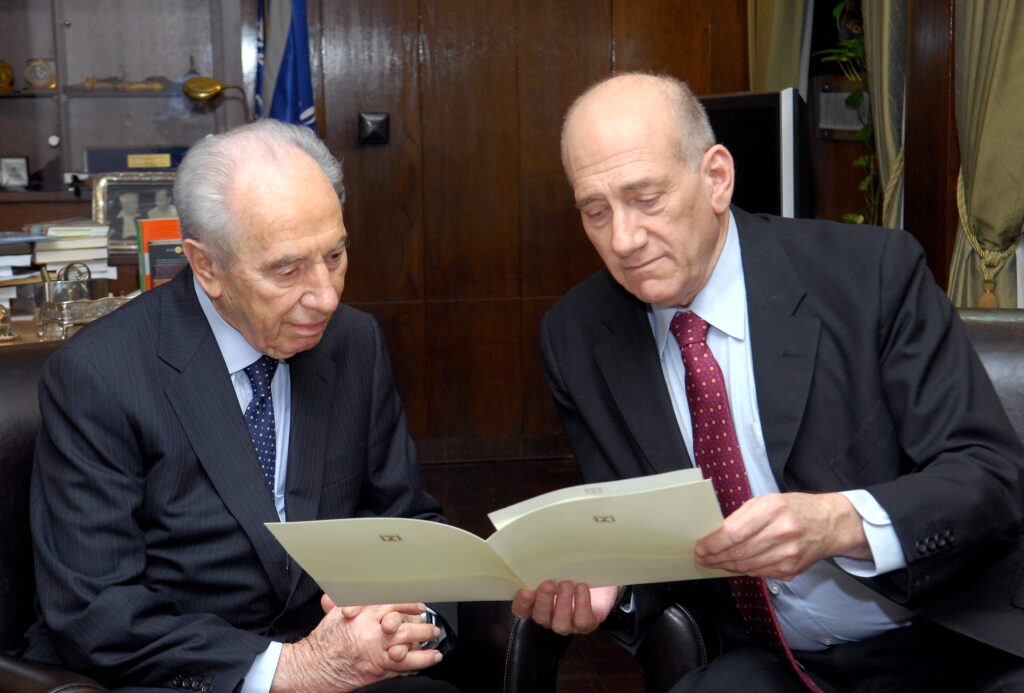September 21, 2008
Amid charges of corruption and financial improprieties, Prime Minister Ehud Olmert resigns his position. Olmert had announced in July he would resign after the election for a new Kadima party leader, which took place on September 17. The newly elected Kadima party leader, Foreign Minister Tzipi Livni, is tasked with trying to form a government September 22 by President Shimon Peres.
Talks between Livni and potential coalition partners prove difficult. After a month without putting a new government in place, Livni is given a two-week extension. On October 26, she informs Peres that she is unable to form a government and that a Knesset election is necessary. Livni tells the press: “I have exhausted the process. I could have stood here today and presented a government. I was willing to pay a certain price to form a government, but I wasn’t willing to mortgage the economic and the political future of the State of Israel and sacrifice the hope for a better future and different politics.”
An election is held in February 2009. Despite Kadima winning a plurality with 28 seats to Likud’s 27 seats, Peres gave Likud leader Benjamin Netanyahu the first attempt to form a government because more Knesset leaders endorse him for the premiership.
In May 2014, Olmert is sentenced to six years in prison for bribery and corruption, but on appeal the sentence is reduced to 27 months. One month is added in a separate trial, and in July 2017 he is released from prison after having served two-thirds of his sentence.
A separate case is opened against him after the discovery that while in jail he shares classified documents with his lawyer and publisher during the writing of his autobiography, but the attorney general decides to close that case in 2018 because of the parties’ close contact with the military’s censor.









